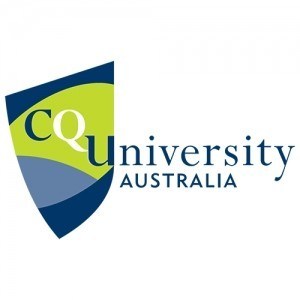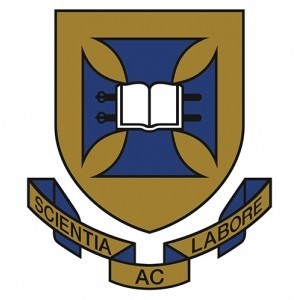Photos of university / #deakinuniversity
The Bachelor of Communication at Deakin University offers a comprehensive and flexible undergraduate program designed to prepare students for a dynamic and evolving media landscape. This degree provides students with foundational knowledge in communication theories, media practices, and contemporary issues affecting society and industry. Throughout the course, students will explore various communication forms, including journalism, public relations, advertising, media production, and digital communication, equipping them with a diverse skill set suitable for multiple career pathways. The curriculum emphasizes practical skills development through hands-on projects, internships, and industry placements, fostering real-world experience and professional readiness. With access to state-of-the-art facilities and industry-leading lecturers, students are encouraged to engage critically and creatively with contemporary communication challenges, promoting innovative thinking and ethical practices. The program also focuses on the importance of understanding media’s role in shaping public opinion, culture, and policy, preparing graduates to critically analyze media content and contribute thoughtfully to societal discourse. Additionally, the Bachelor of Communication offers specializations in areas such as strategic communication, media and journalism, and digital media, allowing students to tailor their studies to their interests and career goals. The degree’s flexible structure includes elective options and pathways to postgraduate study or professional employment, ensuring graduates are well-equipped for roles in media organizations, government, corporate communication, non-profit sectors, and creative industries. By combining theoretical frameworks with practical application, the Bachelor of Communication at Deakin University aims to develop informed, responsible, and innovative communicators ready to make a positive impact in a fast-paced world.
The Bachelor of Communication at Deakin University offers students a comprehensive education in the dynamic and evolving field of communication studies. This undergraduate program is designed to equip students with theoretical knowledge and practical skills across various communication disciplines, including media, journalism, public relations, advertising, and digital communication. Throughout the course, students will explore how information is produced, disseminated, and consumed in contemporary society, gaining critical understanding of the role of communication in shaping cultural, social, political, and economic landscapes.
The curriculum combines core subjects in communication theories, media studies, research methods, and ethical considerations with specialized electives that allow students to tailor their studies according to their interests and career goals. Students will engage in hands-on projects, media production exercises, and internships to develop real-world skills and build professional portfolios. The program emphasizes the importance of digital literacy and technological proficiency, ensuring graduates are well-prepared to navigate the fast-paced digital landscape.
In addition to theoretical foundations, students will examine the impact of emerging technologies such as social media, mobile platforms, and multimedia storytelling. The program fosters critical thinking, creativity, and effective communication skills, preparing graduates for diverse roles in media industries, corporate communication, government agencies, NGOs, and the creative sector.
Deakin’s state-of-the-art facilities, including media labs, editing suites, and online platforms, provide an ideal environment for experiential learning. The university also encourages industry engagement through guest lectures, networking events, and collaborative projects with external organizations. Graduates of the Bachelor of Communication will be equipped to analyze, create, and manage communication strategies that influence public perception and drive organizational success in a rapidly changing world.
The Bachelor of Communication at Deakin University is designed to provide students with comprehensive knowledge and skills across a range of communication disciplines, including journalism, public relations, media studies, advertising, and digital communication. To complete this program, students must undertake a specified number of core and elective units, totaling a minimum of 24 credit points over the duration of the course. The program typically spans three years of full-time study, although part-time options are available, allowing for flexible study arrangements. Entry requirements generally include successful completion of high school or equivalent qualifications, with certain prerequisites in English language proficiency, such as IELTS or TOEFL scores, to ensure students can effectively engage with coursework and assignments.
Throughout the program, students are expected to develop critical thinking, research capabilities, and practical communication skills that are applicable in various media and communication contexts. The curriculum includes foundational units in communication theory, media and cultural studies, research methods, and ethics, complemented by specialized elective units that allow students to focus on areas such as digital media production, branding, or journalism. Practical experience is often integrated through industry placements, project work, and opportunities for internships, which are designed to prepare students for employment in the dynamic communication sector.
Assessment methods typically include assignments, presentations, examinations, and project work, with a strong emphasis on analytical and creative competencies. In addition, students are encouraged to participate in extracurricular activities, such as student media organizations or industry events, to enhance their professional networks and practical skills. To graduate, students must achieve the required grades in all mandatory units, meet attendance and participation standards, and complete any capstone projects or final-year research papers as prescribed.
Deakin University emphasizes academic integrity, professionalism, and lifelong learning in its program requirements, ensuring graduates are not only skilled communicators but also ethical practitioners ready to adapt to evolving industry demands. Overall, the program aims to equip students with the theoretical foundation, practical skills, and industry connections necessary to excel in diverse communication careers upon graduation.
The Bachelor of Communication at Deakin University offers a range of flexible study options and financial arrangements to support students throughout their academic journey. Tuition fees for international students are set annually and vary depending on the specific course components and delivery mode. For domestic students, fees are governed by government regulations and often include HECS-HELP or FEE-HELP options, which enable students to defer payment until they are earning a taxable income above a set threshold. The exact fee amount for the Communication program can be found on Deakin University's official website and is subject to change annually; prospective students are advised to check current rates prior to enrollment.
In addition to tuition, students should consider costs related to textbooks, course materials, and equipment, which vary depending on the subjects selected. Deakin also provides financial support through a range of scholarships, grants, and bursaries aimed at both domestic and international students. These financial aid options are designed to reduce the overall cost of study and can be awarded based on merit, financial need, or other criteria set by the university or partner organizations.
Students are encouraged to explore the university’s scholarship database early to identify available funding opportunities. For international students, specific scholarships cover tuition, living expenses, or both, making participation in the program more accessible. Moreover, the university’s flexible online delivery modes allow students to balance their studies with part-time work or other commitments, which can help manage financial burdens.
Deakin University also offers payment plans and installment options for tuition fees, allowing students to spread the cost over a period of time rather than paying a lump sum upfront. These arrangements are subject to approval and specific conditions. Additionally, students may take advantage of external funding sources, including government assistance programs, private loans, and employer-sponsored education schemes, depending on their circumstances.
Overall, the financing options available for students enrolled in the Communication program at Deakin University are designed to make higher education more manageable through various financial supports, flexible payment schedules, and comprehensive scholarship opportunities. Prospective students should consult the university’s official financial services and scholarships web pages for detailed information and assistance tailored to their specific situation.
The Bachelor of Communication at Deakin University offers students a comprehensive education in the diverse field of communication, encompassing areas such as media, journalism, public relations, advertising, and digital communication. This program is designed to equip students with the theoretical knowledge and practical skills necessary to succeed in the rapidly evolving media and communication industries. The curriculum covers foundational concepts of communication theory, media studies, and research, as well as specialized topics such as digital media production, strategic communication, content creation, and media management. Students have the opportunity to develop their skills through hands-on projects, internships, and industry placements, which provide valuable real-world experience and networking opportunities. Deakin University emphasizes innovative learning approaches, including collaborative projects, industry engagement, and the use of cutting-edge technology in classroom settings. The program prepares graduates for various careers in media organizations, corporate communication departments, public relations firms, advertising agencies, and digital content creation. Additionally, students can pursue electives that align with their interests and career goals, such as international communication, social media strategies, or multimedia journalism. Deakin’s flexible study options enable students to study full-time or part-time and to access online learning resources, making education accessible to a diverse student body. The program also fosters critical thinking, ethical awareness, and cultural sensitivity, preparing graduates to navigate complex communication landscapes ethically and effectively. Overall, the Bachelor of Communication at Deakin University aims to develop versatile communication professionals who can adapt to technological advances and changing industry demands while contributing meaningfully to society through effective storytelling, information dissemination, and engagement strategies.




